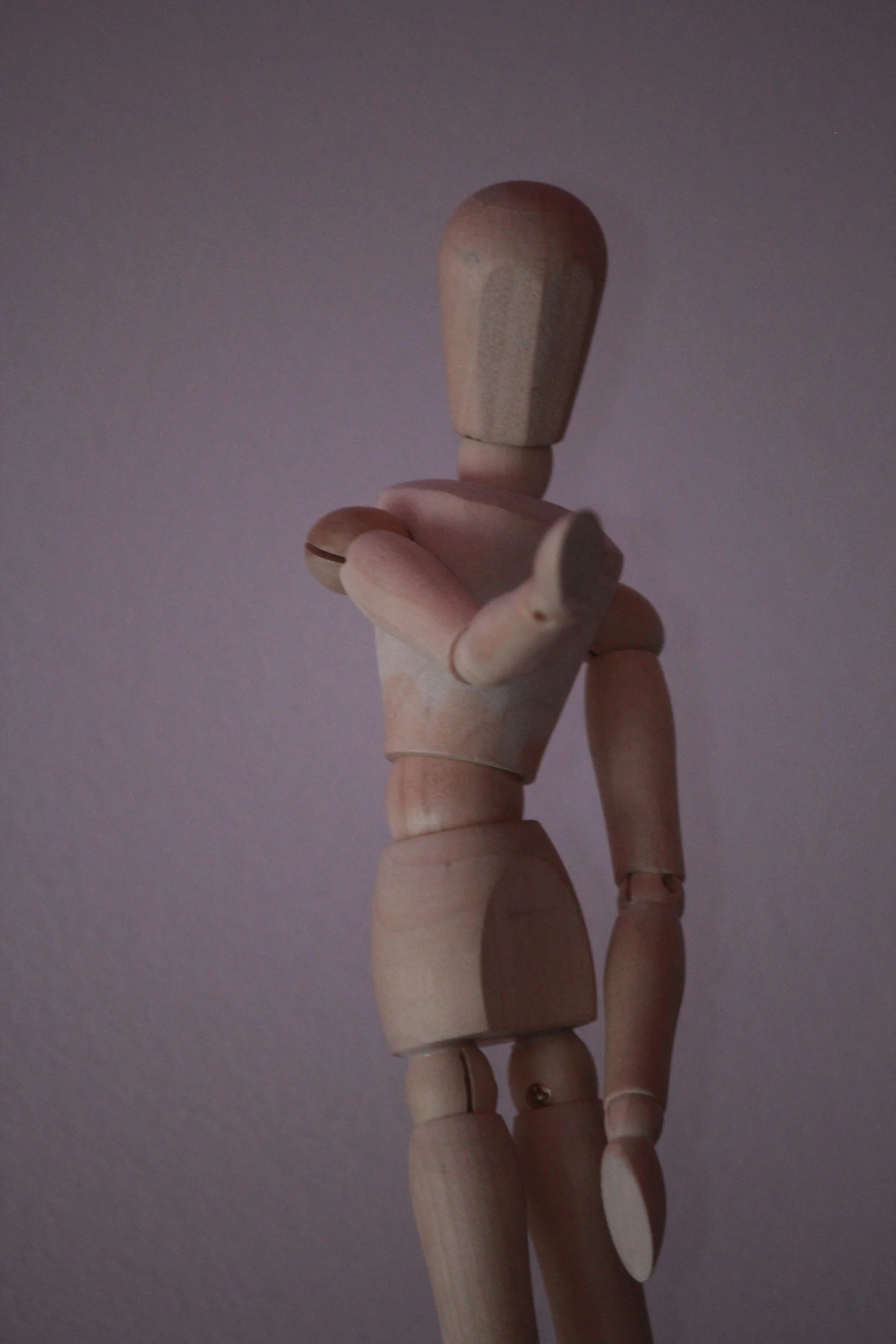The Hospital Vacation
My mother used to tell me, “Marry a man who’s thin. It means he’s a hard worker.” As she predicted, my husband turned out to be a lot like my father. Not only were they both thin, and coincidentally hard workers, they were equally tough. My own prediction was that their thick skin was birthed from the hearty leather of bulls slaughtered by their own swords in past lives. Men like them have been around before, perhaps returned to this earth to learn a new lesson. Perhaps to walk the earth in softer-soled shoes.
My older brother, of a gentler nature, was nominated to call me. “I told mom she should be the one to tell you, but her answer was no.” It was the night before my husband, and I planned to leave with the kids on a family vacation. A week at Top Sail Island. Eating crabs. Our feet in the sand. The suitcases were packed. “There’s nothing to do, you don’t have to come,” my brother sounded as if he was pacing. I sat on the edge of the sectional sofa, kids asleep, lights off, and the television on mute. The flat screen flashed in blinks of neon color as I listened to my brother deliver the news. “Dad broke his hip. He’s going to need surgery but first, the doctors are giving him blood transfusions. Apparently, he’s been getting blood transfusions for years, we just didn’t know. Mom says it’s no big deal, not to make it a big deal.”
“Can I talk to him?”
“Dad? Dahlia wants to talk to you.” Pause. “Sorry, he’s on Morphine or whatever. Do you want to talk to Mom? She’s here.”
“Yes, I want to talk to Mom.”
“Oh, uh, sorry, Dahlia. She’s not. Um. She’s shaking her head. No. She’s not. She can’t. She doesn’t want to talk to you right now.”
“Why?”
“Does any of this make sense?”
“No.”
“So, don’t bother with questions like why. Who knows?”
“Fine, but will you tell Dad I love him? Mom too.”
After we hung up, I fell asleep on the sectional watching the neon lights of the muted television. At two o’clock, I woke up, with a heaviness on my chest. So much stress. It was hard to breathe. I stumbled around looking for my inhaler. One puff. Then two. Maybe some water. Nothing was helping. I made my way upstairs, nudging my husband’s shoulder.
“Honey, wake up. Something’s wrong. It’s hard to breathe. And my chest hurts.”
“You’re fine. Take an Aspirin.”
I did that.
“Honey, seriously, the pain is moving into my arm and my jaw. It’s like there’s a streak of sharp pain rising from my left arm, through my shoulder, into my jaw.”
“You’re nervous. Go to sleep.”
I tried that too.
In the dark of the bedroom, sitting erect next to my snoring husband who lay curled in a cocoon of shut eyed sleep with his back turned away from me, I considered that he was the one, as he often reminded me, with a doctorate in pharmacology who worked in medicine with doctors and understood science and drugs and so on. What did I know about any of this pain I was having? My immediate well-being was not of his concern, the discomfort inching through my body was some kind of manifestation of mine, maybe for attention. I could almost hear him say it, without him saying it. Was I making this up in my head? No. No, I most certainly was not. What I was feeling was very, very real.
I pulled open my laptop and googled my symptoms, which I knew sounded like a heart attack, but I was only 40. Women’s stories. 35 years old. 43 years old. 52 years old. And on. And on. And on. Women my age, or younger, or not that much older, all had written the same thing in health line chat rooms. If I hadn’t gone to the emergency room, the doctor said I would have died. Died?
“Honey, I’m scared.” Pause. “Honey, please, wake up. I’m scared.” Pause. “Please?”
I wiggled my fingers on my left hand. Then my right. Left. Then right. My left hand was numb. My left arm was numb. Sharp pulsing pain radiated from my left shoulder up my neck and into my jaw. A boulder sat on my chest with crushing pressure. I grabbed the keys to the minivan. Drove myself to the emergency room, both hands on the steering wheel, upright, and alert, thinking, if I die, if I die, if I die...
I pictured how my Chrysler must appear from the star's view. Under the moon’s spotlight, a white beam shone through the blackness of night, following this red zooming dot along an empty double yellow-line road, a spec among specs in the great wide world. Human.Mortal.
“My heart hurts,” I fumbled with the brochure stacks at the hospital’s registration table. “Um, maybe I’m just nervous...” A nurse called my name within seconds. There was a fury of fast-paced questions, blood pressure machines, pulse-ox monitors, nurses with faint smiles and flat affect handing me cups with pills and water, poking me with needles, and when the doctor came in, his eyes scanned a clipboard.
The doctor said, “Well, your EKG is normal, but your blood work shows elevated Troponin levels, a sign that you are actively having a heart attack.”
My mouth opened, but no sound came out. I felt myself growing even smaller inside that fluorescent-lit room with white curtains drawn closed. I could be anybody. I could be anywhere. I could vanish in an instant. I could disappear.
“It’s good you’re here,” the doctor said, clicking his pen, his eyes now meeting mine. “If your EKG reflected your Troponin, there would be a scene, like in the movies.” The pen clicked faster, “But, your EKG looked normal, so everything is happening quietly. The cardiologist on call is scrubbing in right now. His team is coming to get you in a few minutes. They’re going to do a procedure in the Cath Lab. You’ll probably get a stent, or maybe two. You should call someone and let them know where you are.”
My husband wasn’t answering his phone, so I texted the babysitter. Once the nurses came to take me to the Cath Lab, communication was cut off, fate would have to take its course. They wheeled my mobile bed through the hallway and up the elevator. Tucked under the stiff hospital sheets, I was shivering and becoming cold, wondering if this was death. They must have given me a sedative. I lay flat. My body calmed. My mind drifted. In the sterile white room, a team of doctors and nurses went through a checklist. Who was I?
Birthday. Check.
Name. Check.
Then, my memory blurred into faint images.
My organs were on a black and white screen
Pressure.
Pain.
I heard words like, “Don’t move. Be still. You can’t sit up or you’ll bleed out.”
And then, “Good news. Your arteries look clear. You don’t need a stent, but we do need to figure out what’s going on with your heart.”
In the ICU my husband appeared as a mirage. His thin frame towered over me with a comforting squeeze of my hand. I tried to sit up and a nurse said again, “You can’t sit up.” I told her it was hard to breathe lying down. She gave me one of those magic nitro pills to open me up– whatever that meant – and when they wheeled me into my own private hospital room not too long after, I told a different nurse that lying down was putting pressure on my chest and I still felt like I couldn’t breathe, so that nurse gave me a breathing treatment which also opened me up. And then, another nurse came with Morphine for the pain from the procedure, and I heard my husband say to the cardiologist who happened to have walked in, “I think they’ve given her too many medicines that open her up.” As a medical scientist working on drug development for the heart, he knew what was about to happen before anyone else did.
Everything started going fuzzy, more than blurry, the room faded around me. It happened fast. I called out to my husband, “Something’s wrong. Everything’s doing dark.”
I heard him call out to the doctor, “She’s coding!”
The doctor held my hand, although I couldn’t see him in the black. I could feel his hand squeezing mine, as my husband had earlier, that touch, that human touch. I knew someone was there. “Okay, darling, okay dear, stay with us, stay with us,” I heard the cardiologist say.
One of the nurses pushed through my IV a drug that worked like what they give to overdose patients, I guess. My eyes popped open. “I’m here!” I cried out. And my eyes locked onto my husband. My cardiologist. The nurses. The tech who brought in the machine they use to shock your heart back into rhythm, but they didn’t need to use it, my husband explained.
“You almost died,” he said. “From too many medicines.”
I was diagnosed with myocarditis, inflammation around my heart.
No one could say when I might go home. So, my husband left with our kids and the babysitter to meet our friends at the vacation rental in North Carolina. Every few days my phone pinged with an update, a photo of the kids running on the beach, splashing in the waves, or eating ice cream. I clung to each brief communication, elongating the exchange in my head.
I spent hours staring out a long window panel that couldn’t open, overlooking the parking lot. The nurses stopped by for short visits, plopping down in a mauve vinyl recliner that was positioned beside my bed, talking to me about the weather. As it goes in my family, illness is kept a secret, for no reason other than not wanting to bother anyone, or was it not wanting pity, or perhaps it was the worry of being perceived as weak. In Kaminsky fashion, I kept my hospital stay a secret.
My brother called with an update. Our father had something called Myelodysplastic Syndrome, known as MDS, and the disease would eventually, probably, morph into Leukemia. But not today. It had been like this for years. He insisted, as my mother insisted, that everything was fine. He’d have surgery to fix his hip the next day. Not to worry.
“It’s not contagious,” my brother said. “I looked into it and it’s not even hereditary. So, none of us can catch it. How are you?”
“Fine,” I stared out the window as ambulance sirens whirled passed the parking lot oward the Emergency Room entrance. “Can I talk to Dad now?”
My brother shouted across the room, “Dahlia’s on the phone. Do you want to talk to her?” Pause. “Maybe later, he said.”
“Yeah, sure, okay. And Mom? Is she there?” I watched as the nurses rushed down the hall to another patient, mumbling with garbled urgency. “Can I talk to her?”
“I’m giving her a break so she can go home and take a shower. You know, she never leaves Dad’s side. She sleeps next to him in one of those recliners, you know what kind I mean?”
I looked to the side of my bed where the nurses sat to keep me company. “I do,” I said, swallowing hard. “Can you ask Mom or Dad to call me?”
Flipping on the television with the remote wired to the hospital bed, I dozed in and out of sleep, the medications making me woozy, when my cell phone rang.
“Hello.”
“Dahlia?”
“Dad!”
His voice warmed me like the crackling of a fireplace. When he spoke to me, I wanted to curl up in his arms like the dark-haired, wide-eyed, mischievous child I was when I was young. “I’m sorry I haven’t been able to talk to you. I’m in the hospital,” he said.
“I know, Dad, I’m sorry too. I’m sorry I can’t come to see you,” silent tears streamedover the puffed hills of my plump cheeks. I held my hand over my mouth to seal in any gasps of sound. And then, against my will, the dam burst open, and I began to sob. “Dad,” I cried, “I’m in the hospital too. Something’s wrong with my heart. Steven left me. I’m all alone and they don’t know when I will go home.”
“What do you mean, Steven left you?”
“He took the kids on vacation. He went with our friends. And I’m stuck here all alone and I didn’t want to tell you, I didn’t want to bother you, but I’m so scared.”
“He didn’t leave you. He just gave you time to get better. What a gift!”
“What?” I sniffled.
“Sure, why not?” He turned my perspective around, the only way he knew how. Nothing must be one way when you could see it in another way. Just make the situation what you want it to be, and that’s what it is.
“Order yourself some ice cream from the cafeteria. But don’t eat too much. Sugar’s not good for you. You don’t want to get fat.”
I laughed, “Thanks, Dad. I will. You order some too. We can compare hospital flavors tomorrow. Will I talk to you tomorrow?”
“Maybe, maybe not.”
“Right,” I breathed into my lungs like a balloon filling with helium. “I love you, Dad,” I made sure he knew.
“Thank you,” he told me. “And Dahlia?”
“Yes, Dad?”
“Don’t take everything so seriously.”
I was in the hospital for eight days. They discharged me with instructions to take three different medicines per day for at least one month, and I took my pills with ice cream. To heal my heart.
-Dahlia Fisher
Dahlia Fisher (she/her) is a published author, produced playwright, seasoned performer, and writing/performance instructor living in Cleveland, OH. She holds a BA in theater, an MA in communications, and MFA in creative writing. She is co-founder of Rebel Readers Cleveland, building bridges between cultures and communities through books.







